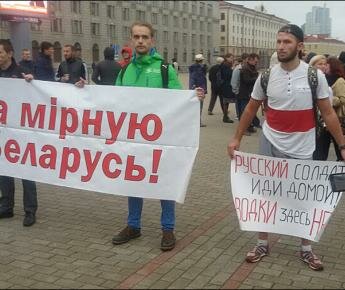Belarus-EU visa facilitation will not be initialed this fall
Belarus and the European Union are not expected to initial their visa facilitation and readmission agreements at a summit of the Eastern Partnership in Brussels on November 24.

“I would not expect any sensational breakthroughs,” Belarusian Deputy Foreign Minister Aleh Krawchanka told reporters in Minsk on Thursday.
When asked to specify the remaining unresolved issues, Mr. Krawchanka said that he was not aware of any problems because he was not involved in the talks. “But do not expect any big negotiations problems there. The sides just need some time,” he said.
According to Mr. Krawchanka, the EU has not yet expressed any willingness to sign a framework agreement on cooperation with Belarus, although the Belarusian government has proposed signing such an agreement on numerous occasions.
“If we are able to approach this agreement in the foreseeable future, it will be a major achievement, but so far there is not even any willingness to have a dialogue on the matter,” Mr. Krawchanka said.
He expressed hope that the recent statement of the foreign ministers of the Visegrad Group member countries that called for starting negotiations aiming at a Belarus-EU framework agreement would have an influence on the EU’s stance. “But everything will take time,” he added.
Belarus and the EU have been in talks on visa facilitation and readmission agreements for several years.
There are no fundamental differences in Belarusian-EU talks on the visa facilitation agreement, Belarusian Foreign Minister Makey told reporters in Minsk on June 22.
According to him, there are some technical issues that the sides still have to settle. “They are being negotiated,” Mr. Makey said. “We will harmonize our positions during the talks. We are interested to come to an agreement on all these issues, and I see an interest on the part of our European partners.”
Belarus and the EU on June 20 agreed in general on the text of the readmission agreement.
The agreement would grant Belarus a transition period during which it would not be required to readmit third-country citizens and stateless persons illegally entering the European Union from its territory, said Alyaksey Byahun, head of the interior ministry’s Citizenship and Migration Department.
“This time is needed to establish mechanisms of work with this category of people, as well as to create the necessary infrastructure in the country,” he said.
Mr. Byahun was referring to the establishment of temporary accommodation centers for illegal migrants. The European Union has promised to donate €7 million to Belarus for the establishment of such facilities.



Disqus?